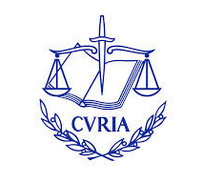Overview of Activities
Over the past year the EU used the entire range of its tools
– CFSP and non-CFSP – to respond to these challenges, to tackle them in an
integrated way and to alleviate their impact on the countries concerned as well
as on Europe. The broader global changes driving the numerous and simultaneous
crises we faced also highlight the need to forge a long-term strategy for the
EU’s external action
Algeria
The EU sent an Electoral Experts Mission (EEM) to the presidential elections in April to undertake a technical, less public assessment of the process, as would have been the case with a fully-fledged Elections Observation Mission. The Mission issued a series of recommendations, mainly focusing on transparency and traceability of the process.
During 2014, the dynamic of political dialogue and of
meetings in the framework of the Association Agreement continued successfully. Minister Ramtane Lamamra
met with Commissioner Stefan Füle in Brussels in April 2014. In the framework of the
EU-Algeria Association Agreement, the Association Committee took place in March and the
Association Council in May. A Protocol to enable Algeria's participation in EU programmes and agencies
was initialled in the margins of the Association Council. Several thematic sub-committees and
informal dialogues were also held throughout 2014. Moreover, negotiations for a European
Neighbourhood Policy Action Plan, which started in the second half 2013, continued with three more
sessions in 2014. Algeria will benefit from an allocation of up to EUR 148 million for the period
2014-2017. Algeria played a prominent role as mediator in the Malian
crisis. The EU was associated to this effort and the EUSR for the Sahel, Reveyrand de Menthon,
participated in the talks between the Malian authorities and rebel groups hosted by the Algerian
government.
Morocco
During 2014, Morocco’s already close relationship with the EU was further developed in an exhaustive range of issues. The EU maintained a high-level of political dialogue with Morocco and continued to support the gradual implementation of reforms undertaken by Morocco following the adoption of the new Constitution in 2012.
During 2014, Morocco and the EU resolved difficulties
pertaining to modification of the entry price mechanism for fruits and vegetables, essentially affecting
exports of Moroccan tomatoes into the EU. The first fishing permits to EU vessels were issued in
September. Negotiations of the DCFTA (Deep and Comprehensive Free Trade Agreement) are on
stand-by pending the results of accompanying studies for certain sectors by the Moroccan
authorities. Mobility partnership negotiations (parallel agreements on visa facilitation and
readmission), have started in January 2015.
Both Commissioners Štefan Füle and Johannes Hahn visited
Rabat respectively in May and December. The Association Council took place on 16 December
2014. In the coming years, the EU partnership with Morocco will continue to benefit from a
significant allocation of funds (an average of EUR 809 million for the period 2014-2017), which
maintains Morocco as one of the biggest recipient of EU financial and technical assistance in the
Neighbourhood. On Western Sahara, as in previous years, the EU expressed
its support to the efforts of the UN Secretary-General and of his personal envoy Ambassador
Christopher Ross to achieve a just, lasting and mutually acceptable political solution. Morocco is part
of the UN Human Rights Council for 2014-2016.
Iran
International concerns about the Iranian nuclear programme remained at the centre of EU-Iran relations throughout 2014. The former HR Catherine Ashton, in her role as negotiator on behalf of the E3 +3 (France, Germany and the United Kingdom as well as China, Russia and the United States), based on a mandate of the UN Security Council, was actively engaged in diplomatic efforts to find a lasting and comprehensive solution to the Iranian nuclear issue. Negotiations continued throughout the year. To ensure their continuity, on 5 December 2014, Catherine Ashton was appointed by the new HR Federica Mogherini as special advisor for facilitating the nuclear talks with Iran.
Following the adoption on 24 November 2013 of an interim six-month agreement, known as the
Joint Plan of Action, talks continued to seek a comprehensive long-term solution to the Iranian
nuclear issue. The objective of the negotiations remains to agree with Iran on verifiable guarantees
about the exclusively peaceful nature of Iran's nuclear programme. A first meeting at Political
Directors level was held in Vienna in February 2014 soon after the beginning of the implementation
of the Joint Plan of Action, and negotiations continued at a steady pace. During talks at principals'
level from 2-19 July 2014 in Vienna the Joint Plan of Action was extended until 24 November
2014. Several rounds of talks at political and expert level followed but a comprehensive deal could
not yet be reached during a meeting at Ministerial level in Vienna from 18-24 November 2014 and
an extension of the Geneva Joint Plan of Action until the end of June 2015 was agreed.
An EU Council Decision also extended the sanctions relief measures as agreed in the Joint Plan of
Action until 30 June 2015. This included the suspension of certain EU sanctions, to allow the
provision of insurance and transport in relation to Iranian crude oil sales to its current customers,
import of Iranian petrochemical products as well as trade in gold and precious metals with the
Iranian government. The increase in thresholds for authorising financial transfers to and from Iran
was also maintained. The core sanctions architecture remained intact.
The EU was encouraged by some steps that Iran took to improve relations with regional neighbours
and the international community. Iran played a constructive role in the peaceful government
transition in neighbouring Iraq. However, Iran's continuing involvement in the Syrian conflict and
support to organizations such as Hezbollah, Hamas and the Houthis in Yemen, is a source of
concern to the EU and regional and international partners.
Despite the hopeful signals in 2013 after the election of President Rouhani, for instance with the
release of a number of prisoners of conscience, no progress on human rights was observed in 2014.
During her visit to Teheran in March 2014, the HR/VP addressed human rights with the government
and met with several women activists. The EU also continued to raise the human rights situation in
Iran at bilateral and multilateral level and in public statements, be it as a general principle or in
relation to individual cases. As was the case in previous years, the EU supported a UN General
Assembly Resolution sponsored by Canada in 2014
More countries - here



Comments
Post a Comment